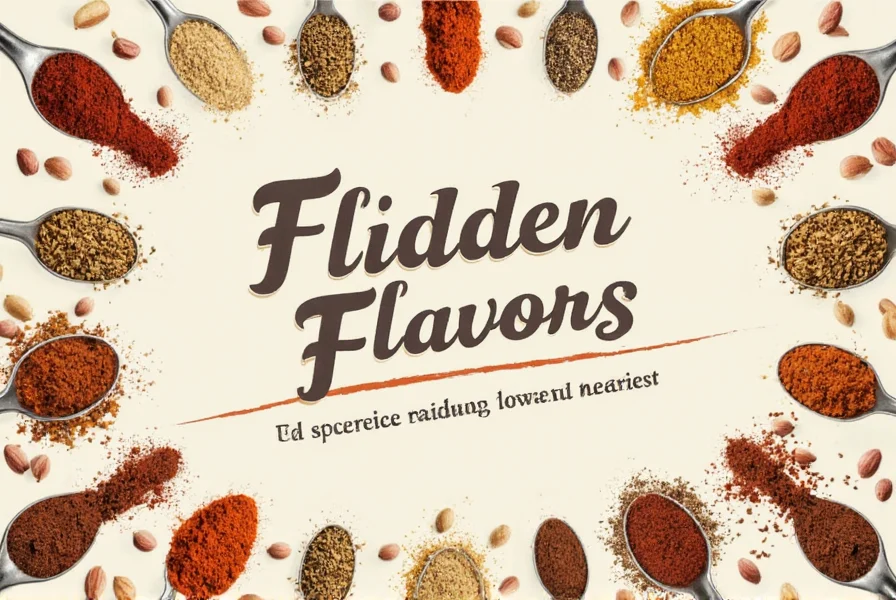Boiling chicken is a quick and easy cooking method, but plain boiled chicken often lacks flavor. The good news? With the right spices and storage techniques, you can transform it into a delicious, versatile ingredient for any meal. This guide covers everything from spice selection and application to proper storage and recipe ideas—all designed to maximize flavor and freshness.
Why Spice Matters for Boiled Chicken
Boiling chicken is a gentle cooking technique that preserves moisture and nutrients, but it doesn't develop the rich flavors of searing or roasting. Without proper seasoning, boiled chicken can taste bland. Spices not only add flavor but also enhance aroma, color, and nutritional value. Understanding how to use spices correctly can elevate your boiled chicken from ordinary to extraordinary.
| Spice Type | Best Used In | Flavor Profile |
|---|---|---|
| Cumin | Oil-based rubs or broths | Earthy, nutty, warm |
| Paprika | At the end of cooking | Sweet, smoky, vibrant |
| Turmeric | Broths and stews | Earthy, mild bitterness |
| Garlic Powder | With other ground spices | Pungent, savory |
| Bay Leaves | Stocks and soups | Woody, herbal |
Top 5 Spice Hacks for Flavorful Boiled Chicken
You don't need a gourmet kitchen to make boiled chicken exciting. These five simple techniques will transform your chicken into a flavorful centerpiece for any meal.
Hack #1: Salt It Right
Don't just dump salt into the water. Use coarse sea salt or kosher salt for better flavor distribution. Season both the boiling liquid and the chicken after cooking for maximum flavor penetration.
Hack #2: Add Whole Spices to the Pot
Whole spices like bay leaves, peppercorns, coriander seeds, and cloves release flavor slowly during simmering. Place them in a cheesecloth pouch for easy removal after cooking.
Hack #3: Make a Post-Boil Spice Rub
After cooking, toss the chicken in a blend of smoked paprika, garlic powder, onion powder, chili flakes, and lemon juice for an instant flavor boost. Perfect for tacos, salads, or wraps.
Hack #4: Infuse Your Liquid with Herbs
Add fresh thyme, rosemary, or lemongrass to your boiling water for a fragrant base that permeates the meat without overpowering it.
Hack #5: Use Toasted Spices for Depth
Toasting spices like cumin, fennel seeds, or mustard seeds before adding them to your broth unlocks deeper, richer flavors. Toast them dry in a pan for 1-2 minutes until fragrant, then crush slightly.
How to Store Spices Like a Pro
Proper storage is crucial for maintaining spice potency. Here's how to keep your spices fresh and flavorful for months:
Temperature and Light Matter Most
Store spices in a cool, dark place away from heat sources like stoves or ovens. Sunlight and heat accelerate degradation.
Airtight Containers Are Key
Transfer spices from paper packaging or flimsy bottles to airtight glass jars with tight-fitting lids for maximum freshness.

Label Everything Clearly
Use waterproof labels or a label maker to mark each spice with the name and purchase date. This helps track freshness and prevents confusion.
Freeze What You Can
Some spices, like chilies or whole cinnamon sticks, can be frozen to extend shelf life. Just wrap them tightly in freezer-safe containers.
Keep Only What You Use
Don't hoard spices you rarely use. If a spice hasn't been used in six months, it's time to replace it. Quality beats quantity when it comes to spices.
Buying Guide: Best Spices for Boiled Chicken
Choosing the right spices for boiled chicken involves considering flavor, versatility, and shelf life. Here are our top recommendations:
| Product | Features | Advantages | Use Cases | Audience | Occasions |
|---|---|---|---|---|---|
| McCormick Ground Cumin | Pure, finely ground, no additives | Rich earthy flavor, great for blending | Boiled chicken soups, stews, rubs | Home cooks, meal preppers | Everyday meals, batch cooking |
| Bobs Red Mill Smoked Paprika | Natural smoke flavor, non-GMO | Smoky depth without grilling | Finishing touch on shredded chicken | Enthusiasts, grill lovers | Tacos, sandwiches, snacks |
| Schilling Bay Leaves | Dried California-grown leaves | Strong, herbal aroma for stocks | Chicken broth, soups, rice dishes | Chefs, home cooks | Simmered dishes, long-cooked meals |
| Mrs. Dash Original Blend | No added salt, herb-based mix | Low sodium, ready-to-use seasoning | Seasoning chicken before boiling | Families, health-conscious cooks | Meal prep, healthy eating |
| Simply Organic Turmeric Root | Organic, sustainably sourced | Vibrant color and anti-inflammatory benefits | Golden broths, curries, infused waters | Wellness-focused cooks | Health recipes, comfort foods |

Easy Recipes Using Boiled Chicken & Spices
Now that you've got the perfect spice setup, try these simple recipes that transform boiled chicken into flavorful meals:
1. Spiced Chicken Salad
- Ingredients:
- 2 boiled chicken breasts
- 1 tbsp olive oil
- 1 tsp smoked paprika
- ½ tsp garlic powder
- Lettuce, avocado, cherry tomatoes
- Instructions:
- Shred boiled chicken and toss with oil and spices.
- Top salad greens with seasoned chicken and veggies.
2. Turmeric Chicken Broth
- Ingredients:
- Whole chicken carcass or thighs
- 1 tsp turmeric
- 2 bay leaves
- 1 tsp peppercorns
- 1 carrot, chopped
- Instructions:
- Simmer all ingredients in 6 cups water for 1 hour.
- Strain and enjoy as a warming soup or stock base.
FAQ: Spice Up Your Boiled Chicken Knowledge
Can I add spices directly to the boiling water when cooking chicken?
Yes, especially whole spices or those that benefit from simmering (like bay leaves, peppercorns, or turmeric). For delicate spices (like saffron or fresh herbs), add them toward the end for maximum flavor impact.
Should I season the chicken before boiling or after it's cooked?
For best results, do both. Season the water first with salt and whole spices to infuse the chicken as it cooks, then sprinkle some extra salt or spice blend on the chicken after it's done to intensify the flavor profile.
Which spices have the longest shelf life for chicken recipes?
Whole spices (like peppercorns, cumin seeds, and cinnamon sticks) last up to 4 years. Ground spices typically last 2–3 years. Dried herbs (like oregano and thyme) have a shelf life of about 1–3 years. For optimal flavor, replace ground spices every 2 years and whole spices every 3-4 years.
How can I tell if my spices are still fresh and potent?
Rub a small amount between your fingers and smell. If the aroma is weak or nonexistent, it's time to replace them. Another test: sprinkle some on a neutral food like plain rice or chicken. If you can't detect much flavor, your spices have likely lost their potency.
How long should I boil chicken to ensure it's cooked properly but still tender?
For boneless, skinless chicken breasts, simmer for 12-15 minutes until they reach 165°F internally. Thighs or drumsticks with bones need 25-30 minutes. Always check with a meat thermometer to prevent overcooking, which can make chicken dry and tough. Remove from heat when it reaches 160°F as it will continue cooking slightly from residual heat.
Can I reuse the spiced broth from boiled chicken for other recipes?
Absolutely! Your spiced chicken broth is liquid gold in the kitchen. Strain it to remove spices and solids, then refrigerate for up to 4 days or freeze for up to 6 months. Use it as a base for soups, stews, risotto, or to cook grains like rice or quinoa for extra flavor. The spices infused during boiling create a flavorful foundation that elevates any dish requiring broth.
Conclusion
Boiled chicken doesn't have to be bland. With the right spices and storage techniques, you can transform it into a versatile, flavorful ingredient for any meal. Whether you're making a quick salad, hearty soup, or flavorful broth, these tips will help you get the most out of your boiled chicken. Remember: quality spices, proper storage, and strategic seasoning are the keys to unlocking delicious potential in every bite.










 浙公网安备
33010002000092号
浙公网安备
33010002000092号 浙B2-20120091-4
浙B2-20120091-4